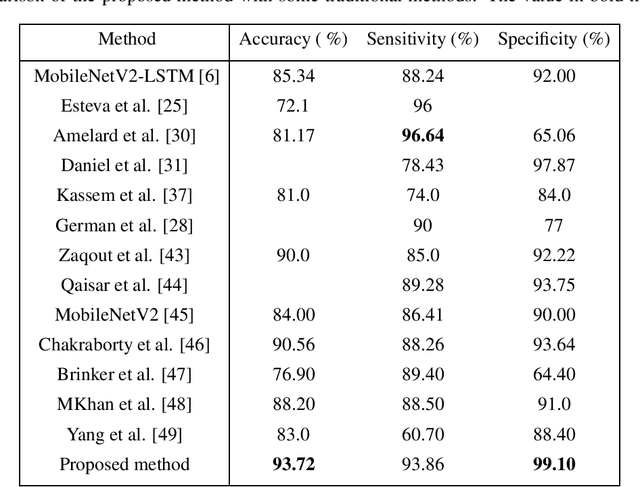Bilinear-Convolutional Neural Network Using a Matrix Similarity-based Joint Loss Function for Skin Disease Classification
Paper and Code
Jun 02, 2024



In this study, we proposed a model for skin disease classification using a Bilinear Convolutional Neural Network (BCNN) with a Constrained Triplet Network (CTN). BCNN can capture rich spatial interactions between features in image data. This computes the outer product of feature vectors from two different CNNs by a bilinear pooling. The resulting features encode second-order statistics, enabling the network to capture more complex relationships between different channels and spatial locations. The CTN employs the Triplet Loss Function (TLF) by using a new loss layer that is added at the end of the architecture called the Constrained Triplet Loss (CTL) layer. This is done to obtain two significant learning objectives: inter-class categorization and intra-class concentration with their deep features as often as possible, which can be effective for skin disease classification. The proposed model is trained to extract the intra-class features from a deep network and accordingly increases the distance between these features, improving the model's performance. The model achieved a mean accuracy of 93.72%.
 Add to Chrome
Add to Chrome Add to Firefox
Add to Firefox Add to Edge
Add to Edge